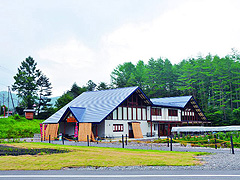
The product assortment, which focuses on "locally processed specialty products of local materials", seems to be natural and difficult, is attractive. It collects foods made from buckwheat, suunki, and omidake, blueberries, etc., as well as folk crafts, cosmetics, and other products from the company. The most popular is 650 yen with 10 pieces of Gopfrets from Kaida Kogen.
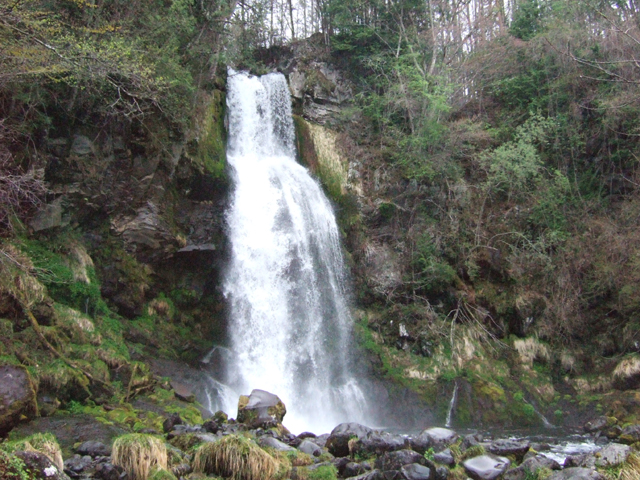
A large waterfall with a height of 30m in the upper reaches of the Reikawa River. It is a snow-melting water of Mount Ontake, and the water temperature is around 8 ° C even in summer. It is a popular summer resort for walking.
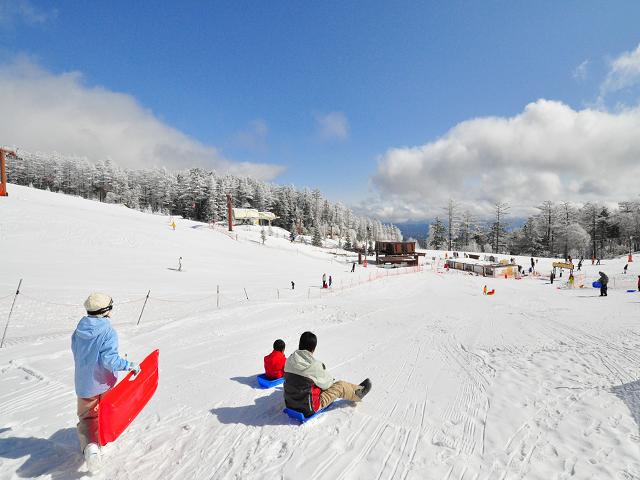
It is one of the largest ski areas in the Kiso area spread on the southeast slope of Mount Ontake. Even at the bottom of the altitude, it is located above 1680m, so the entire slope is covered with powder snow of Sarasara. You can glide while enjoying the majestic scenery in a panoramic course that even beginners can slide in, a long course with a total length of 3000m, etc.
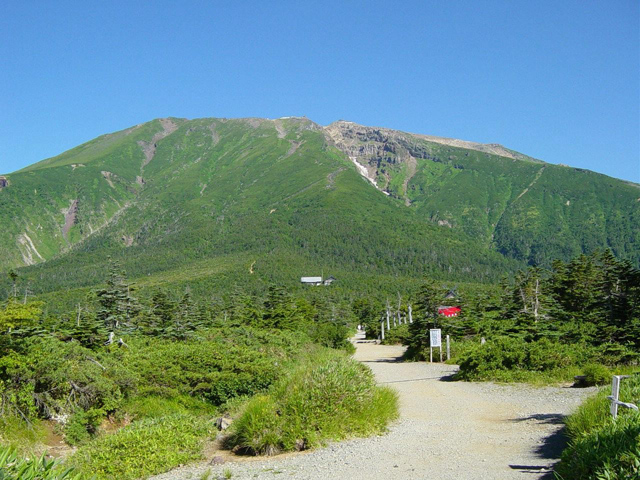
It is an area of 2180m at an altitude of 2180m, which is full of alpine plants such as yellow-willed rhododendron, black-willed lily, rock-wintered, and black-wobbly-willed. Flowers that grow around the promenade for about 20 minutes around the perimeter are greeted from mid-June to early July, and are perfect for nature observation. On a nice day, the mountain surface of Mount Ontake is approaching, and you can also see the mountains of the Central Alps and Mount Norikura.
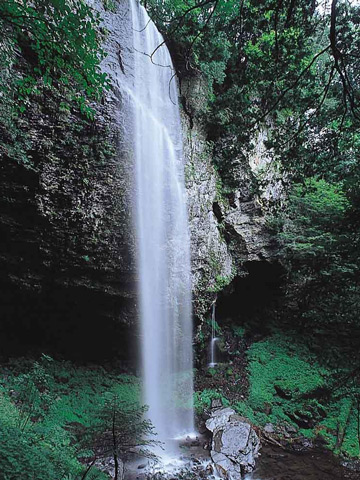
Along with Kiyotaki [Kiyotaki] in the lower reaches, a waterfall known as the place of Mizunari [Mizunori] for followers of the Mitake faith. Behind the waterfall, which has a height of 30m, there is a cave where believers can practice and practice, and Benkoten and Fudomei are celebrated. You can see the back of the waterfall from the cave, but you need to be prepared to get a little wet.
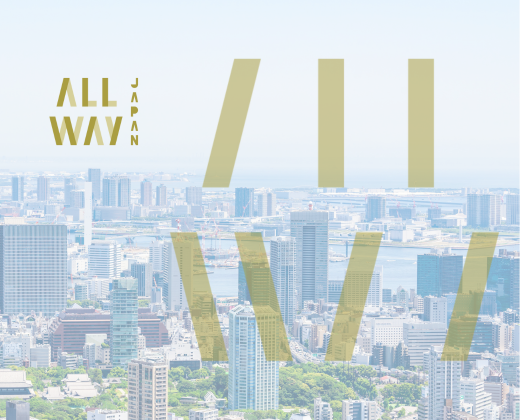
Day-trip bathing is also accepted at one of the hotels in Kiso Koma's hot springs. In addition to the iron spring oyu, which is the source of komonoyu, there is a herbal outdoor bath with herbs native to Noyama in the Kiso region. Stay safe as guests pick up from one person to Kiso Fukushima Station and sightseeing spots around the station. You can enjoy local ingredients such as mountain food and Kiso local cuisine. Kiso Koma is one of the best star spots in Japan, and the starry sky experience tour (free) where the staff of the inn will guide you is also popular. Accommodation is free for 2 people per night (1 room) from 8360 yen per person (150 yen per person).
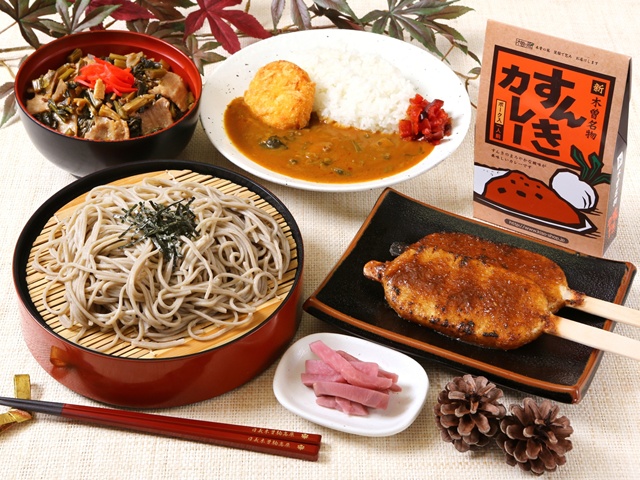
It is a convenient location for exploring Kiso Road, and has a selection of famous Kiso products. There are many original processed suunki products using famous products, such as curry, dressing, freeze-dried suunki juice, which makes use of its mellow acidity. Suoki soba is popular in the restaurant. The ground flour 100% homemade stone ground kōdakowari soba, and the Gonbei soba menu are well received.
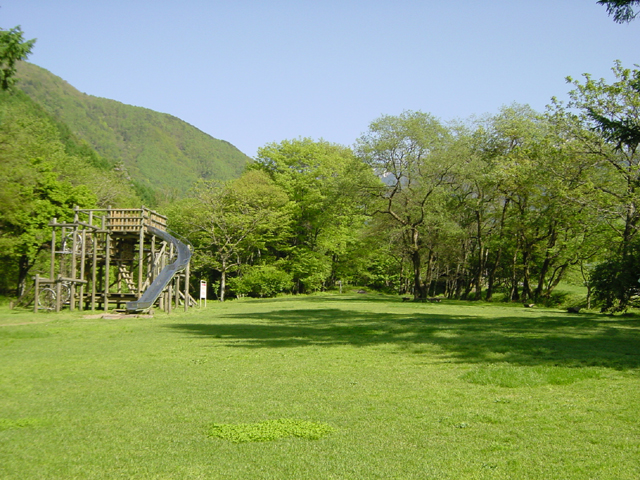
It is located in the western part of the Kisoma Kogen, which overlooks Mount Kiso Komagatake to the east and Mount Ontake to the west. Various facilities to interact with nature are scattered in the spacious hardwood forest. In addition to sports such as Mallet golf and tennis, there are auto campsites and dog runs. In addition, at the barbecue house, you can bake lamb and pork barbecue, as well as caught char and fished trout on the spot.
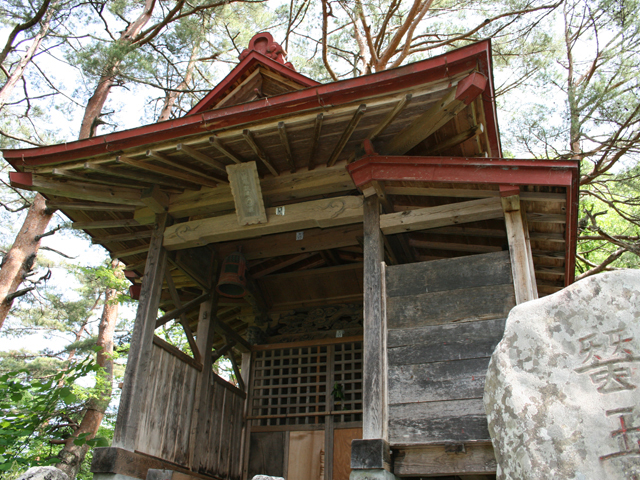
Iwasha-kanyin is counted among the three Kiso-san-kanyin alongside Maruyama-kanyin in Kaita and Iwade-kanyin in Okuwa-mura. Once around Kisoji, the people's thick faith was gathered by Kanon Guanyin in prayer for the breath of the ox horses, which are vital to life. This is also one of them, and it is said that the spiritual ritual that Kiso Yoshinaka celebrated is a new Guanyin. The shrine stands on a rock with a little poor footing, but has a good view of Mount Ontake.
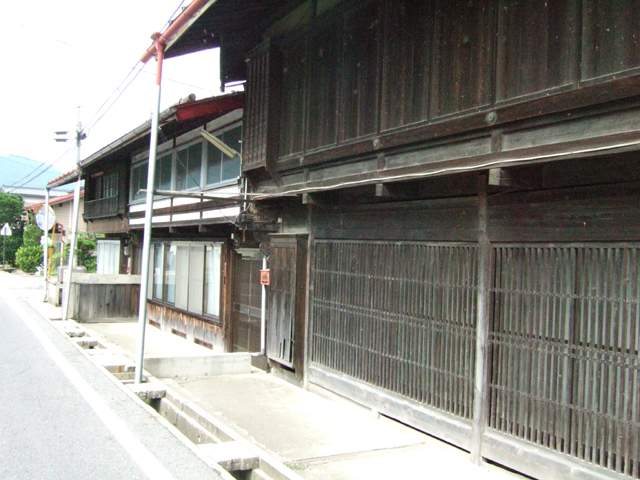
The hamlet along the Nakasendo road, which left Miyonogoshi Station and took a left at the intersection in front of the Tonakabashi, is dotted with the image of the former Miyonogoshuku. The only thing you can see around this area is a private house of Izubari-zukuri (dashibari-zukuri), which is typical of the post town. Like the birthplace of Kiso carpenters, the design is elaborate on each of the carried-out (boards fitted to support the beam). In addition, the remains of the main staff and the restaurant remain in the main town at the center of the inn.











